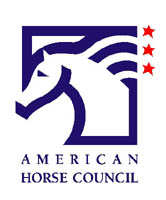|

|
 |
H-2B Visa Cap Reached for Fiscal Year
2004 - Visas for New Workers Put on Hold A recent decision by the U.S. Citizenship and Immigration Services (USCIS) could have serious implications for employers using alien workers at racetracks, horse shows, fairs and similar non-agricultural exhibitions. These workers are generally admitted to the US as H-2B temporary, non-immigrant workers. USCIS has announced that it has received enough petitions to meet this
year’s congressionally-mandated cap of 66,000 new H-2B workers and
will not accept any more petitions for H-2B visas for the current 2004
fiscal year, which ends October 1, 2004. This puts the H-2B program for
all new such workers, including those in the equine industry, into limbo
and could affect the admission of these valuable alien workers depending
on each employer’s situation and admission process. The H-2B worker program is limited to “temporary service or labor if unemployed persons capable of performing such service or labor cannot be found in this country.” H-2B visas are used in many diverse industries. Since 1990 there has been a Congressionally-mandated cap or upper limit on the number of these visas that can be issued annually, but it has apparently not been reached or not enforced. It will be this year. A new allotment of H-2B visas will be available on October 1, 2004 for the 2005 fiscal year. We understand that H-2B workers are used throughout the horse industry in non-agricultural jobs. In the racing industry individual trainers and state horsemen’s associations have organized, on-going programs to employ and bring aliens into the country to work on the backstretch under what might be termed H-2B groom visa programs. These programs have worked fairly well, although they can be expensive and the application process is burdensome. These various programs could be affected by the recent action of the
USCIS, depending on when the admission period ends, whether it involves
new workers or the extension of existing H-2B visas and other factors
for particular workers. But any individual or organization seeking H-2B
visas for their workers should be aware of the USCIS decision and review
how it might affect their continued use of aliens.
The cap does not affect petitions for current H-2B workers since they do not count towards the congressionally-mandated H-2B cap. Therefore, the USCIS will continue to process petitions filed to:
Congressional Action Sought A legislative solution to the cap problem is necessary and is being
sought by various business sectors. Senator Ted Kennedy (D-MA) and others
are expected to introduce legislation to raise the 66,000 cap currently
in place. This problem is just a part of the broader need for immigration reform, both agricultural and non-agricultural. The AHC is working with a coalition of non-agricultural employers working to change the broader alien worker provisions. This group, called the Essential Worker Immigration Coalition (EWIC), is working on reform of H-2B programs. The changes proposed by EWIC are important to the horse industry. They include:
|
| Back to News |
BENEVOLENCE | BENEFITS | GROOM ELITE | PERSONNEL | LINKS | CONTACT US
